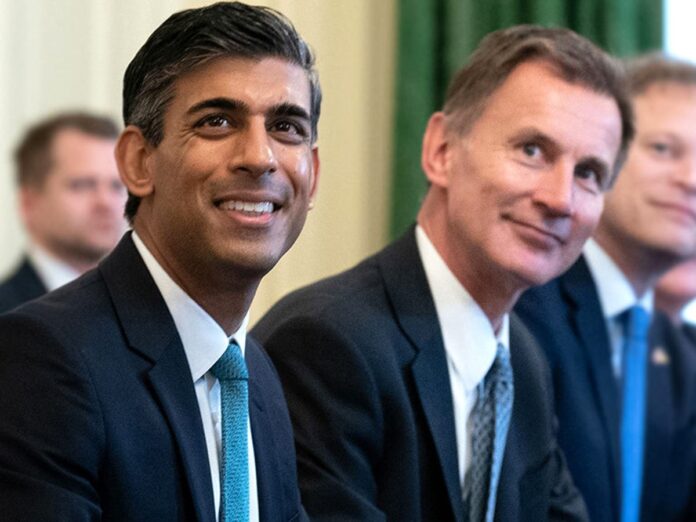Rishi Sunak was accused of locking the UK in a ‘vicious cycle of stagnation’, as the Bank of England hiked interest rates and predicted the longest recession in a century.As chancellor Jeremy Hunt issued a further signal of austerity measures to come in this month’s autumn statement, there were warnings from business not to repeat the mistakes of the early 2010s by cutting government investment.And the TUC renewed its call for an immediate general election to allow voters to pass judgement on the package of tax rises and spending cuts being planned by Mr Hunt in his 17 November statement.Mr Hunt left no doubt that more pain is coming in the Autumn Statement, saying he will have to take ‘difficult decisions on tax and spending’.Labour’s shadow chancellor Rachel Reeves called on Mr Sunak to face up to ‘mistakes’ over 12 years of Conservative government – including his own time as chancellor and PM – which have led to the current economic crisis.But Mr Hunt insisted that interest rate rises around the world were being driven by the Covid-19 pandemic and Russia’s invasion of Ukraine.Speaking moments after the Bank’s interest rate announcement, Ms Reeves said families across Britain were now facing ‘higher mortgages and more anxiety after months of economic chaos’. ‘Today’s recession warning lays bare how 12 years of Tory government has weakened the foundations of our economy, and left us exposed to shocks, lurching from crisis to crisis with falling living standards and low growth,’ said Ms Reeves. ‘As chancellor and now prime minister, Sunak must face up to his mistakes that have led to the vicious cycle of stagnation this Tory government has trapped us in.’TUC head of economics Kate Bell said: “Workers are paying a high price for the Conservatives crashing the economy. ‘Today’s interest hike will increase the risk of a bleak recession this winter. And it will hammer businesses and people paying a mortgage. ‘We need a new economic plan with growing wages and strong public services at its heart. And we need a general election now, to replace the party that created this crisis.’Alpesh Paleja, lead economist at the CBI, said Mr Hunt should learn the lessons of the 2010s, when George Osborne’s austerity package kicked off a decade of sluggish growth as government hacked back spending.’With monetary policy focused on tackling inflation, the government’s immediate priority should be to reinforce markets’ faith in the UK’s hard-won reputation for stability – but fiscal sustainability and growth shouldn’t be an either/or choice,’ said Mr Paleja. ‘The Autumn Statement must learn the lessons of the 2010s – fiscal sustainability and lifting trend growth are both priorities.’Alongside protecting the most vulnerable, the government should safeguard capital spending and investment allowances to enable private sector investment to drive future growth.’But Mr Hunt signalled that cut are on the way in the Autumn Statement, as he struggles to fill a black hole in state finances estimated at up to £50bn and caused in part by predecessor Kwasi Kwarteng’s botched mini-Budget.Government sources have indicated the chancellor is looking at a 50/50 mix of tax rises and spending cuts as he attempts to balance the books.’The most important thing the British government can do right now is to restore stability, sort out our public finances, and get debt falling so that interest rate rises are kept as low as possible,’ said Mr Hunt.’Sound money and a stable economy are the best ways to deliver lower mortgage rates, more jobs and long-term growth. However, there are no easy options and we will need to take difficult decisions on tax and spending to get there.’He added: ‘Inflation is the enemy and is weighing heavily on families, pensioners and businesses across the country.’That is why this government’s number one priority is to grip inflation, and today the Bank has taken action in line with their objective to return inflation to target. ‘Interest rates are rising across the world as countries manage rising prices largely driven by the Covid-19 pandemic and Putin’s invasion of Ukraine.’
Interest rates: Sunak accused of locking UK in ‘vicious cycle of stagnation’
Sourceindependent.co.uk
RELATED ARTICLES


